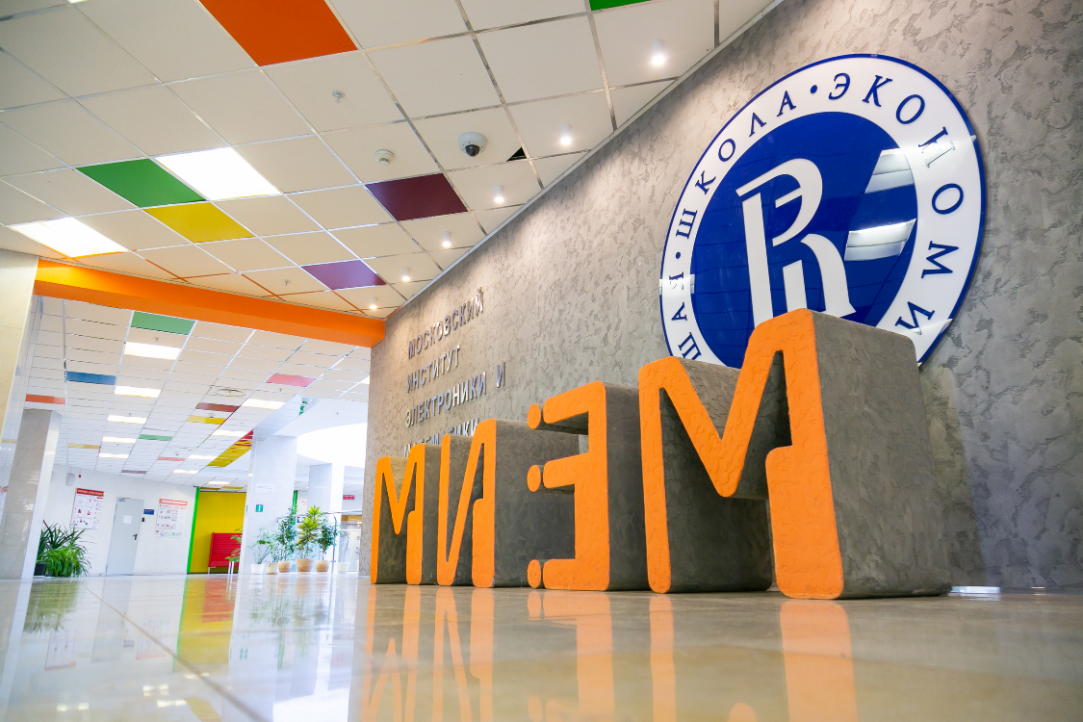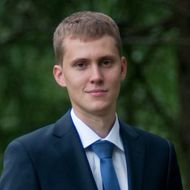MIEM Holds ‘Electronics, Photonics and the Internet of Things’ Summer School

Over three days, the participants learnt about the main subject areas of the master's programmes of the HSE School of Electronic Engineering. About three dozen undergraduate students and graduates from different Russian universities took part in the summer school. Leading MIEM teachers and visiting lecturers from Russian companies were among those who spoke about promising areas of development in electronics, photonics, quantum technologies and the Internet of Things (IoT).
The intensive school programme included lectures, master classes and workshops covering subject areas of the School of Electronic Engineering master's programmes in ‘Applied Electronics and Photonics’ and ‘Internet of Things and Cyber-physical Systems’.

Alexander Yurin, Head of the summer school ‘Electronics, Photonics and the Internet of Things’
The Summer School is a unique chance to learn more about the school's master's programmes in a short time, talk to teachers and academic supervisors, learn about portfolio evaluation, and determine a learning trajectory.
The Master's in Applied Electronics and Photonics is related to the research, development, production and practical application of modern electronic means in communication and telecommunications systems, information display and processing, as well as research into such promising technologies as photonics, quantum computing, quantum communications and quantum sensors. The school featured four talks dedicated to engineering in electronics, micro- and nanoelectronics
Professor Igor Kharitonov, Associate Professor Dmitry Popov, and senior lecturer Maria Krasivskaya conducted a series of master classes on CAD in electronics, micro- and nanoelectronics, technological modelling of electronic components and modern measuring technologies.
Senior lecturer Pavel Korolev spoke about modern software tools for calculating reliability, as well as about ensuring the reliability of electronic components and devices. This field has been developing at MEIM since its foundation and is becoming increasingly relevant in the production of devices for various purposes.
In a session on quantum nanoelectronics and materials, associate professors Renat Ikhsanov and Ivan Monakhov spoke about modern problems in optoelectronics and the materials used to create solid-state electronics.
Roman Ozhegov, Associate Professor of the Quantum Optics and Telecommunications Joint Department with Skontel, made a presentation on the basics of quantum cryptography as part of a session on the technological foundations of quantum computing and quantum communications.
The Internet of Things and cyber-physical systems are new and dynamically developing areas of knowledge studied in MIEM’s corresponding master's programme. Ilya Ivanov, Academic Supervisor of the programme, and leading experts from Russian companies presented the programme to participants of the school. The students learnt about the history of the industry and listened to talks on ‘What Is the Internet of Things?’, ‘The Internet of Things as a Creation of the Peripheral Nervous System of the Planet’, and ‘A Review and Analysis of the Security of the Internet of Things’.

Ilya Ivanov, Academic Supervisor of the ‘Internet of Things and Cyber-physical Systems’ programme
Until recently, ‘the Internet of Things’ was just a marketing term, but now it has become an established and actively developing industry. The Internet of Things is multidirectional and interdisciplinary in nature. IoT experts combine three specialisations: developer, integrator and product/project manager. This feature is part of our master’s programme.
The organisers of the school demonstrated the structure of the master's programme’s educational process to the participants, many whom plan to continue their master's studies at MIEM.
Maxim Ulyanov, graduate of MIEM HSE undergraduate programme, school participant
‘I liked the event—it was well organised, the lectures were very informative with a lot of useful and interesting information, the material was detailed, and the teachers presented it in an interesting way. On the one hand, you understand what you can learn in MIEM master's programmes, and on the other hand, the lectures are useful in general.’
Valeria Pashkovskaya, graduate of MIEM HSE undergraduate programme, school participant
‘During the three days of the summer school, we got to know the teachers and the experts from companies related to IoT, as well as learn about the admissions and study process of the master's programme. After two years of studying remotely, the online format works well, so both the speakers and the students could deliver and listen to lectures comfortably and ask questions. It was nice to see people you know again and immerse yourself in lectures after long work on your thesis.’
See also:
HSE University Holds 10th Summer School ‘Eye-tracking in the Lab and Beyond’
This year, more than 100 students from Russia and abroad took part in the 10th summer neurolinguistic school, ‘Eye-tracking in the Lab and Beyond’. The school is held annually by the HSE Center for Language and Brain. Leading experts spoke about advanced developments and research in the field of video-oculography.
Data Analysis and Personalised Medicine: Summer School in Cardiogenetics
The Continuing Professional Development Centre of the HSE Faculty of Computer Science has recently hosted the summer school 'Cardiogenetics: From Sequencing to Constructing a Cardio Panel'. The school programme was co-organised by the Russian Academy of Sciences' Institute of Analytical Instrumentation and Institute of Spectroscopy and the Syntol company.
‘Interest in the Application of Machine Learning in Bioinformatics Is Growing by the Year’
On August 28–30, HSE University’s Faculty of Computer Science held the 4th Summer School on Machine Learning in Bioinformatics. This year, 670 people registered for the event, and over 300 visited in person. The programme included lectures and seminars on various spheres of bioinformatics: applied bioinformatics and the bioinformatics of DNA, RNA, and proteins; elementary genomics; modern methods of data analysis and molecular biology. The lectures were complemented by practical tasks aimed at different levels of knowledge.
HSE Faculty of Computer Science Holds Summer School on Software Engineering
At the beginning of July, a summer school on software engineering was held at the HSE Faculty of Computer Science. This is the successor to the school on mobile applications development, which was held at the FCS from 2015 to 2022. The school’s partners for this event included 1C, Sber, the community of authors of the Indicator games, and the Samsung Innovation Campus IT School.
‘This Summer School Made Me Realise How Important Data Analytics Actually Is Nowadays’
From July 4–8, the 14th Summer School ‘Methods and Tools for Analysing Social Networks’ was held by the International Laboratory for Applied Network Research (ANR Lab). The dissemination of knowledge about the most recent methods of network analysis is one of the goals of the laboratory. Social network analysis is an interdisciplinary field that studies networks of interactions between different objects (such as people, organisations, institutions, countries, words in texts, texts on the internet) and identifying hidden patterns within them.
HSE Faculty of Computer Science Holds Summer School on Entrepreneurship
In early July, HSE Faculty of Computer Science held the 2nd Summer School on Entrepreneurship. It was organised by the faculty Centre for Internships, Projects and Entrepreneurshiptogether with Tinkoff Bank, and industry partners including Yandex, Sber Student and Otkritie Bank. More than 40 students from the Faculty of Computer Science and other HSE faculties took part in the school.
HSE Students Explore Environmental Problems at Summer School in South Urals
The summer school 'Space in/for Environmental Humanities: Reconsidering the Global through Studying Peripheries' explored the impact of human activity on natural environments and their transformation. It was co-organised by the School of Environmental and Social Studies (Anthroposchool) at the University of Tyumen (TSU) and the HSE Poletayev Institute for Theoretical and Historical Studies in the Humanities (IGITI), with support from the Mirror Labs programme of HSE University.
HSE University Hosts Third Summer School on Machine Learning in Bioinformatics
Between August 23rd and 25th, the HSE Faculty of Computer Science held its annual summer school on machine learning in bioinformatics. After two years of being held online, the school returned to an offline format for this year. Over three days, more than 120 participants attended lectures and seminars by leading experts in the field from institutions such as HSE University, Skoltech, AIRI, MSU, MIPT, Genotek, and Sber Artificial Intelligence Laboratory.
Faculty of Computer Science Holds its First Entrepreneurship School
At the end of August, the Centre for Internships, Projects and Entrepreneurship of the Faculty of Computer Science, with support from the HSE University Business Incubator, held the first summer school on entrepreneurship. More than 40 HSE University bachelor’s and master’s students participated in it. The school was aimed at developing the students’ entrepreneurial skills and introducing them to the art of presenting ideas and products.
ICEF Holds Summer Bridge School in Financial Economics
The ICEF Summer Bridge School prepares students from various countries and universities for their master’s studies. It is a short-term summer programme for students of bachelor’s and master’s programmes who are planning to apply to the Master’s in Financial Economics at ICEF and similar master’s programmes at other universities in the coming year. The participants of this year’s School included students from Uzbekistan, Russia, Ghana, Azerbaijan, Italy, Armenia, Nigeria, China, Turkey, and others.


